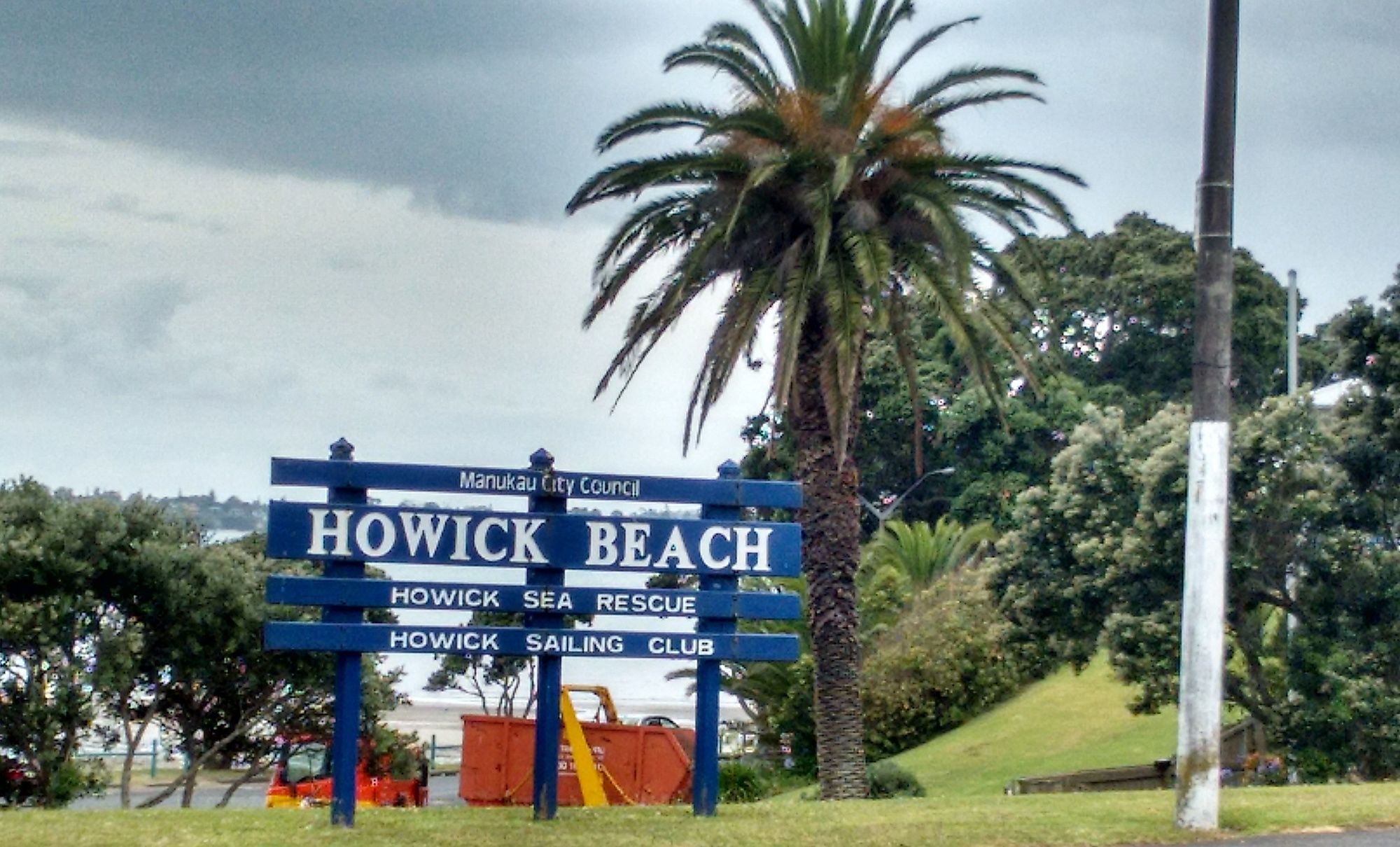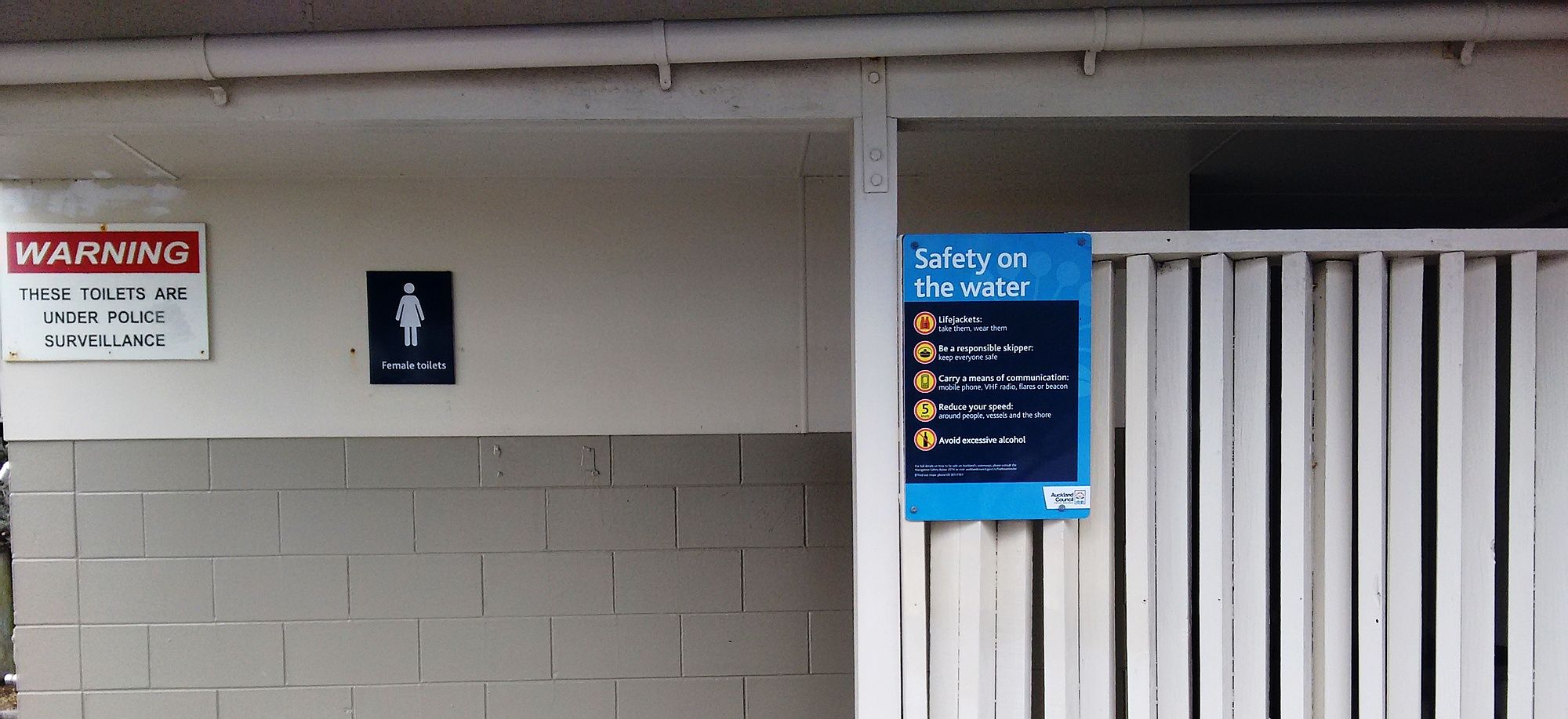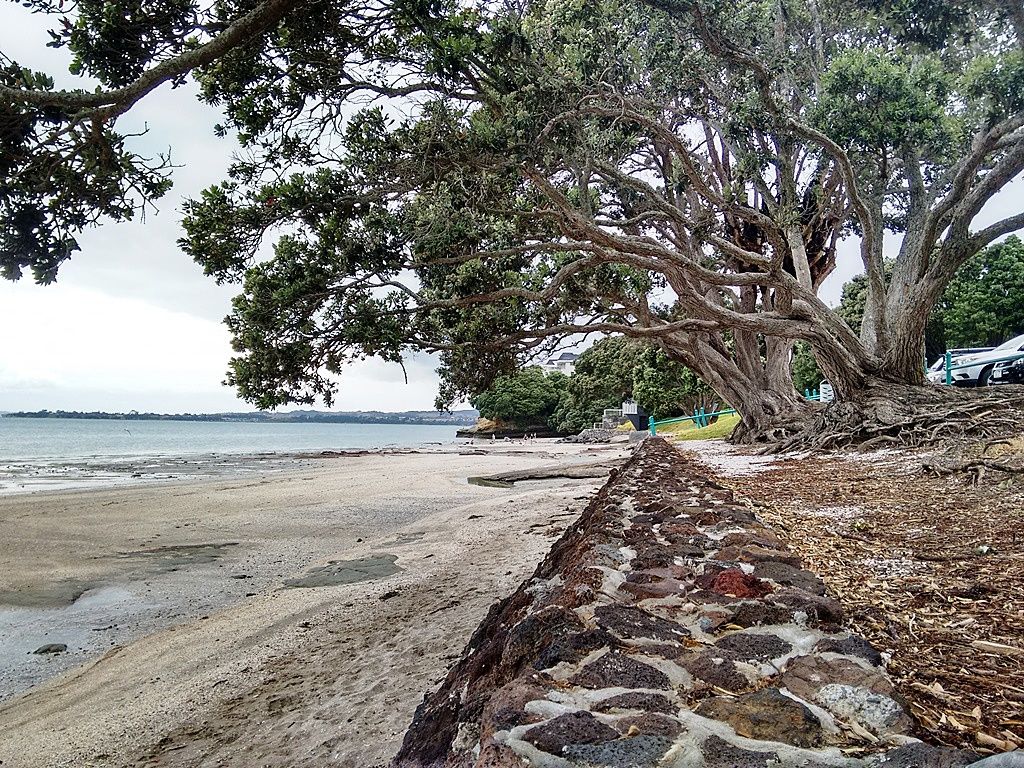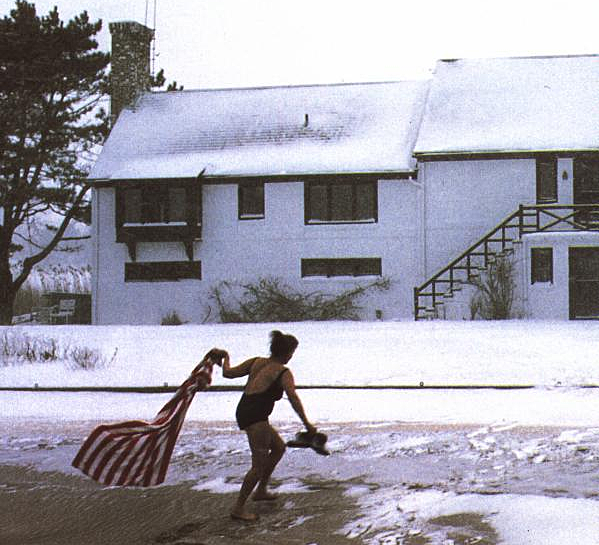Bogeymen on the Beach
Police unofficially restricting women’s access to public spaces? No problem, says the Human Rights Commission
Police unofficially restricting women’s access to public spaces? No problem, says the Human Rights Commission.
East Auckland has a public masturbation problem. It’s a perennial nuisance, nothing new. What is new this season is the report that, due to the indecent male exposure, “Police are warning young women not to go to east Auckland beaches alone”. No other advice was given back, apart from what to do if you saw someone wanking (take their picture if poss).
Just like that, very casually, women’s personal freedoms have been restricted. The police are an authority; their recommendations and warnings carry weight. You’d be a fool to ignore their advice – all the neighbours say so – and even more of a fool to let your daughters ignore it. Thus, in practice the warning restricts women’s access to two important wells of well-being on our busy islands: beaches and solitude. It also restricts their freedom of movement. Most significantly, in the absence of a guarantee of public safety, the warning restricts women’s rights to full information so they can decide how to protect themselves, and from what. In short, it restricts women’s rights to independence, and agency over their own lives.
“But,” I hear, “the warning is for the young women’s own protection!” Sure, it is well-meaning, in a patronising, patriarchal sort of way. But what we need is full information, not a vague warning. Do I want to know that I’m less likely to witness public masturbation if I’m at the beach with friends, rather than there by myself? Of course. But I also want to know if I’m less likely to be disturbed if I am going for a run on the beach, or I’m swimming, or paddle-boarding, or walking, or climbing trees. I want to know if sitting near other groups of people is a deterrent, even if they’re not my own posse.
The casual delivery of the advice contrasts with its restrictive implications. The warning is not the subject of any official police press release, nor of any notice at Howick Beach...
I want to know if the perpetrators have always stayed some distance away, hidden in the shadows, beating about the bushes – in which case, I personally wouldn’t change any beach plans – or whether they’re likely to come up and flash me, looking for attention. I want to know if I’m likely to be physically attacked – in this case, I will probably stay away from the beach altogether. (As it happens, this is not the motivation for the police warning.)
Other women will make a range of different decisions, and that’s part of the point. When it comes to violence – visual, psychological and/or physical violence – women should each be able to decide what level of risk they’re willing to accept, in the face of a state that doesn’t care enough to guarantee their safety. (In answer to emailed questions last month, Inspector Jared Pirret, Counties Manukau East acting Area Commander, said that examples of steps that women could take “to prevent being victimised” included “going to an alternative location, going with friends, and being vigilant around personal safety.” No other options were given, nor was any further information about how to be “vigilant around personal safety”.)
The casual delivery of the advice contrasts with its restrictive implications. The warning is not the subject of any official police press release, nor of any notice at Howick Beach where water safety warnings are myriad; and it hasn’t been updated as the situation changes. “East Auckland beaches” aren’t defined in the reports (are we talking Mission Bay? Maraetai?), nor is the “young” in “young women”.
In answer to our questions, Inspector Pirret emailed that, since one offender was caught in mid-December, all the reports of “indecent exposures offences (masturbating)” have been at Howick Beach. In other words, women can go alone to all other beaches without worrying more than usual about wankers. You heard it here first.
As for the age thing, Inspector Pirret writes: “The offender was initially doing these indecent acts towards young females 15 – 25 years [old] but there have been cases of it occurring to middle-aged woman [sic] as well. I would recommend that all females beach goers need to be aware of the increased risk currently.” So while the current warning should be geographically more restricted – the menace is one guy at one beach – it should apparently also be widened to all women. Meanwhile the previous warning was not clear. If I were 30, I would have assumed that “young women” included me. Unclear warnings spread unnecessary fear.
*
Still not convinced that the police have given human rights just a little bit of a push and a shove? Here’s the fun part: counterfactuals.
What if police had advised beach-going young women to wear modest one-piece swimsuits instead of bikinis? There would be outrage about slut shaming and victim blaming, and rightly so. Yet, recommending they not to go to the beach alone is also victim blaming, and while it doesn’t restrict the clothes we put on our bodies, it restricts where we put our bodies at all. One can imagine a complainant being asked: “so you were alone at the beach? Dear lord, that’s a masturbation invitation! You must secretly have wanted the attention.”
What if police had advised men not to go to the beach alone, in order to ensure the safety of young women?
Or what if police had advised young women not to go to those beaches at all? Again, I would hope for outrage, this time at obvious discrimination and the restriction of rights. Access to public space should not depend on your gender and age. But advising women not to go alone means they need to be able to go to a different beach – maybe having to leave their neighbourhood to do so – or they need to persuade someone to accompany them, presumably by begging, pleading or trading favours. Not only is this not always easy for a spontaneous trip to your neighbourhood beach, it means the woman has to give away power, over her own choices about her own activities. And what if she wants to be alone? What if she doesn’t want to go to just any old beach, she wants to go to her favourite beach, enjoying her own company? “Don’t go alone” is a lesser restriction than “don’t go”, but it isn’t qualitatively different. Could the masturbation epidemic get so bad that women will be advised not to go to the beach unless accompanied by male relatives? (For their own good, you understand.)
Or what if police had advised men not to go to the beach alone, in order to ensure the safety of young women? Not that they’re insinuating every man is a problem, you understand, but so that any solitary man, once the advice was in place, could be viewed with suspicion? The outrage would be outsized. Every habitual lone male walker would feel indignant that their rights and routine were being made to change and they were being made to feel as though they were perverts – even though they hadn’t done anything wrong!
Um, solitary young women haven’t done anything wrong either.
*
The episode illuminates a number of issues. For a start, it assumes and entrenches gender stereotypes. The advice – and the acceptance of it – expects that women won’t really mind not going to the beach alone (if the advice had been for young men, one can imagine a reaction of ‘but how are they going to let off steam?’). Beneath this idea is a deeper assumption that women like to be indoors and/or chatting with friends. It takes for granted that it’s only men, those outdoorsy types, who like to enjoy nature as hermit crabs. Apparently man alone enjoys being man alone. The beach is assumed to be a male-dominated zone, Tarzan territory.
Public risk management of this public nuisance might include a security guard – or even better, a public programme of beach activities for the kids: something positive.
Even when Western culture listens to women’s cries for solitude, they emphasise solitude indoors. The famous 20th century cris de Coeur on this subject are Virginia Woolf’s desire for “a room of one’s own” and Greta Garbo’s famous “I want to be alone” – evoking a professional study and a femme fatale’s boudoir, not the Great Outdoors. In contrast, I’d recommend the police book club reads Tessa Duder’s New Zealand classic Alex series: the eponymous 15-year-old heroine often bikes down to an Auckland beach for a solitary swim. She occasionally gets into scrapes – the skin of her limbs is quite literally scraped after one biking accident – and she has to deal with unwanted male attention multiple times (although not necessarily at the beach). But she keeps cycling, and she keeps swimming, and she keeps doing these things alone. Not a stickler for the rules, Alex would want access to a shitload of information and options before she was ready to consider giving up activities important for her happiness and mental health, on some vague advice from the police. Alex has been a role model for young New Zealanders for 30 years now. Someone call the police.
The eastern beaches episode is also an example of the privatisation of risk. Public masturbation is a threatening nuisance in a public space, but who is being asked to shoulder the burden of preventing it? Private individuals, in the form of restricted freedom. We are told we are all individuals, that personal freedom is to be cherished, that it is the epitome of the good life. Young women, like young men, are told to strive for it. But it turns out it can be taken away, just like that, because risk has been privatised as well as benefits. Neo-liberalism both imposes individualism and withholds it from those without power (women, in this case). Public risk management of this public nuisance might include a security guard – or even better, a public programme of activities for the kids at the beach: something positive. Any friendly official presence would be useful – this is a community response rather than (just) one for the police. Do we care so little about other people that we wouldn’t change our behaviour if it helped to protect them? Do potential victims have to bear the brunt of the consequences of the offending?
While we’re at it, how do we take back the night? Many men feel free to wander our parks and beaches in the dark by themselves. I envy them that privilege. Can we have a night ambassador up Maungawhau/Mt Eden please? Whether that’s worth the cost depends on society’s values; currently, independence for women is not a priority. I’m willing to bet the police warning has meant fewer women on east Auckland’s beaches this season than if women had been given full information, and certainly fewer than if there had been more of an official presence at the beach. Is the answer a shrug of the shoulders and a “who cares?”
*
When I first saw the warning report in November, I fired off an informal email to the Human Rights Commission (HRC). I noted that the warning “tells men that the police will back up intimidation of women”, and suggested that the warning was indicative of a cultural problem within the police: they seem to need education on all aspects of gender equality. I was hoping that the HRC might remember the police’s infamous lackadaisical investigation of the Roast Busters case, or that they might even know that women are often unwilling to go to the police when they’ve been victims of sexual offending, because the complaints process can be traumatic. I had been lulled into a sense that the HRC were on to it by Equal Employment Opportunities Commissioner Dr Jackie Blue’s excellent response to New Zealand Rugby’s contemptible SNAFU ‘investigation’ of accusations of sexual assault against Chiefs players. She wasn’t just concerned about those incidents on their own, but about those incidents in the context of New Zealand Rugby’s culture, saying “we must address the culture that exists from the top down”.
I receive a disturbing refusal from the HRC to even acknowledge there may be a problem
But I was disappointed. I received a reply from one of the HRC mediators that said: “At this point, this is not something the Commission would involve itself in at a broader level as it seems to me that the Police actions would appear to be seen as reasonable. They're not stopping young women from going to the eastern beaches, they are merely warning them not to go alone.”
Groan. Groan! This response exhibits no understanding of the slippage between informal and formal warnings – of how the power of official authority goes beyond mandatory orders, of how police attitudes can make behaviour such as sunbathing alone at a beach seem aberrant, risqué and perverse. And it displays no understanding that a warning can be overly restrictive without being an absolute prohibition. Erosion of rights can be subtle, it is not a black and white issue. (Also: "appear to be seen"? Seen by whom?) The HRC could have said – as it says in the HRC-instigated open letter to the NZ Rugby Union – that sexual violence survivors advocate Louise Nicholas “has been working alongside NZ Police to successfully enhance their internal culture for some time now” and they could have said they would pass my email on to her. Instead, I receive this disturbing refusal to even acknowledge there might be a problem. Who has our backs, who will stand up for – or, dear lord, at least just acknowledge – our rights to full information, our rights to make decisions about our own lives, if not the Human Rights Commission?
I leave you with this image of Katharine Hepburn in her 80s, running out of the water after a solitary dip on the beach in the snow. This is what I aspire to in 50 years’ time, except instead of the big private house, there will be pohutukawas at a public park. And okay, I’m not really hankering for snow on the sand. But I hope I will know that I’m as safe as anyone can be – and that everybody else is too – because we will all have worked hard to create a society where all people are valued and cherished.




